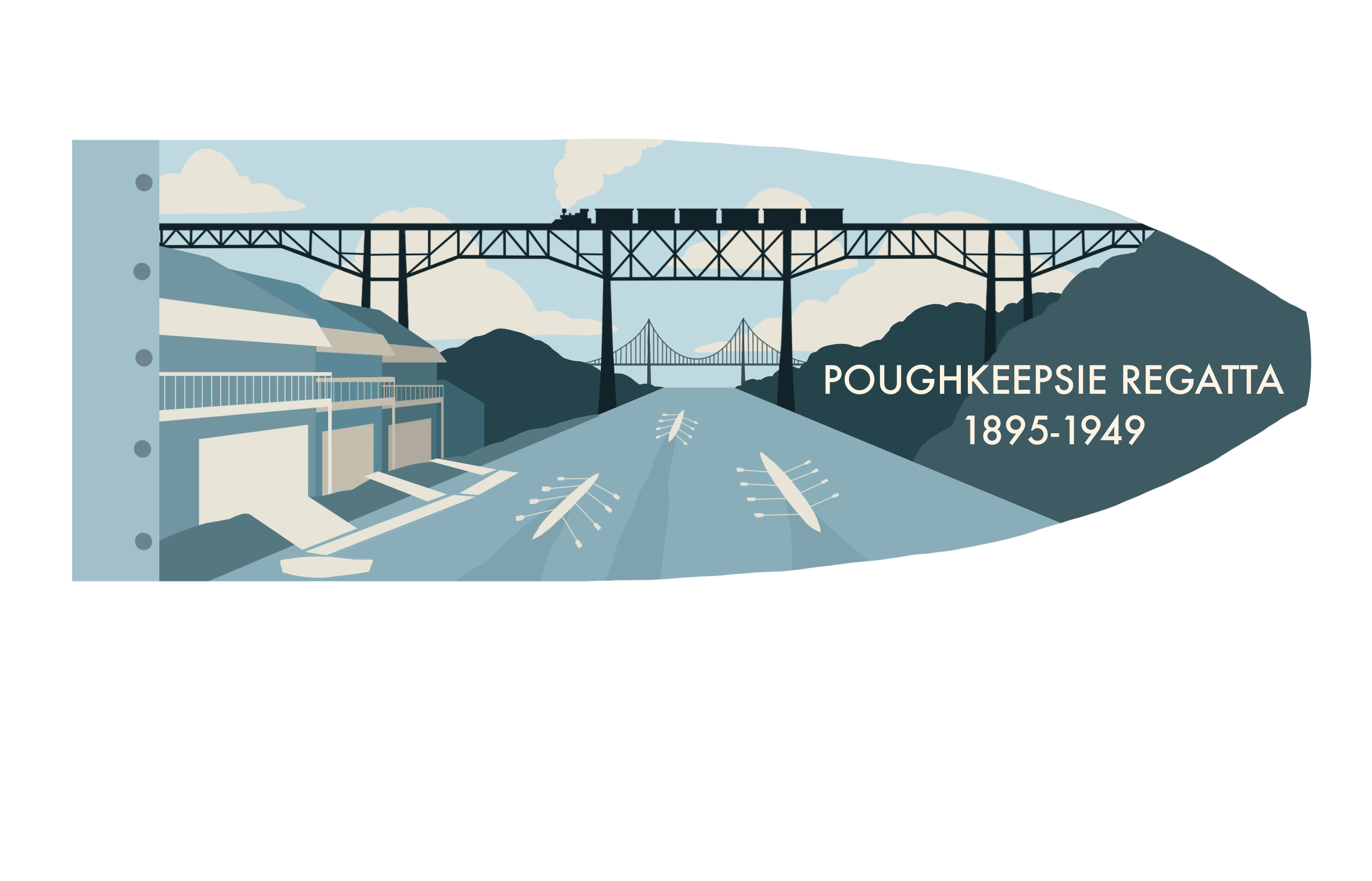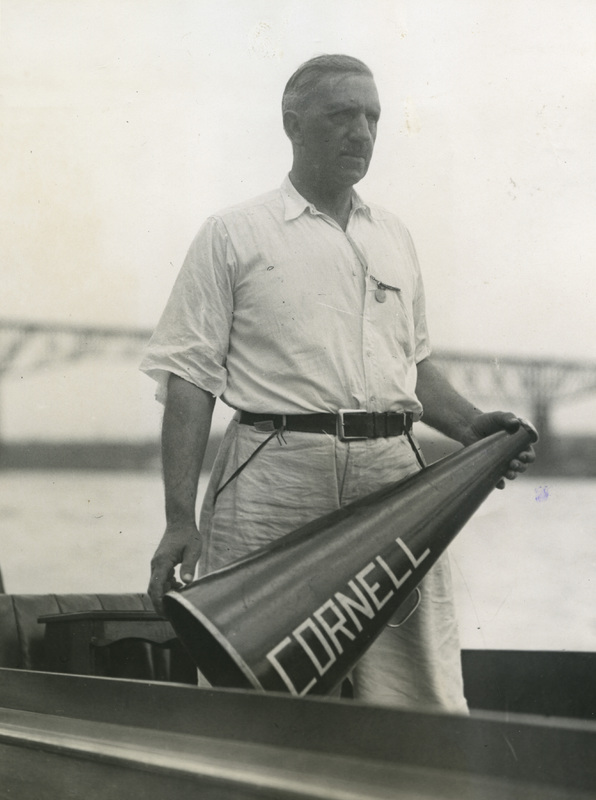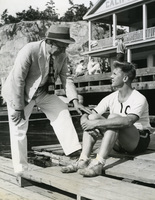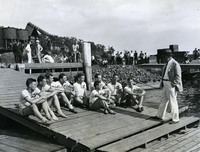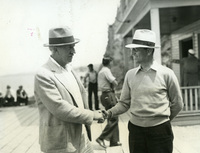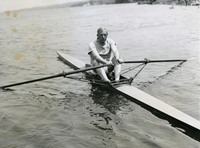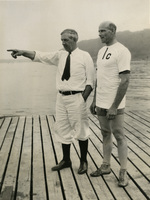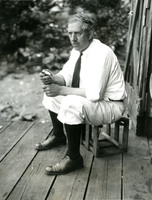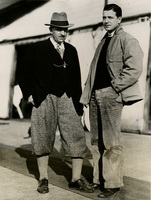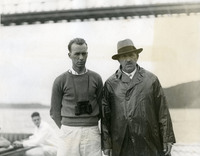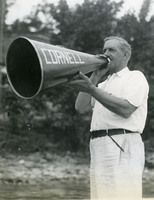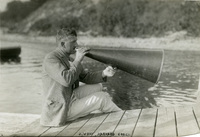James "Jim" Wray
Harvard's Crew Coach 1905-1915
Cornell's Crew Coach 1926-1936
James "Jim" Wray began rowing early on as a fisherman in Shoalhaven, Australia. Eventually, he began competing in rowing races, which he won. This caught the attention of a wealthy patron who financed his career as a professional sculler. He would go on to row in three countries, the United States, Australia, and England.
He transitioned to coaching as his career wound down, taking a position at the Weld Boat Club at Harvard in 1901. He continued there until 1904 when he was offered a coaching position at the Union Boat Club in Detroit. Wray ended up coaching university crews much like how he had ended up a professional sculler, his rowing caught the eye of a university. He was sculling in Boston when Harvard observed him and admired his technique. They were looking for a new coach after losses to Yale and offered Wray the job of head coach. Harvard's crews did very well under Wray, only losing a few times to Yale in the annual contest. In 1914, Harvard and Wray had their greatest victory when they sent a crew to the Royal Henley Regatta. They won the Grand Challenge Cup, the first American university crew to do so. Harvard was jubilant and extended Wray's contract for five more years, which he accepted. Suddenly in the fall of 1915, Wray was removed as coach. The Graduate Rowing Committee submitted a coaching plan naming Robert A. Herrick as head coach with William "Bill" Haines as assistant. No reason was given for this change, but there may have been some controversy over Wray's recruiting practices or his protests regarding Yale's victories. Wray's contract was paid out by Harvard and he did not return to the world of university rowing for another decade.
After leaving Harvard, Wray coached club crews in Boston and in 1926, he coached the Arundel Boat Club of Baltimore. Wray accompanied the boat club to a race on the Schyllkill River and was sculling along the course for fun when he again caught the attention of another university. Cornell University was in need of a new coach after finishing last in the Poughkeepsie Regatta in 1926 and gave Wray a one year contract to start.
Wray's coming to Cornell signaled the end of the Courtney system, which had been kept alive without the same results by the previous coaches, John Hoyle and Dr. Charles A. Lueder. Wray did not have a name for his stroke, but he could certainly teach it usually through a hands on approach. He often got in the shell with his crew, rowing with them or rowing one on one with a crew member who needed extra training. One sports official called it "coaching by ear" meaning that Wray could resolve problems and teach by doing and demonstrating, better than by explaining verbally. That being said, he did talk to his rowers a lot, talking through problems in a soft spoken voice and rarely using the megaphone to yell at crews. The Cornell crews had great confidence in him and gave him the nickname of the "Old Man" (perhaps harkening back to the days of Courtney).
In 1930, Cornell saw its first IRA varsity victory under Wray and its first since before World War I. Wray's hard work and rapport with the crews had paid off. But this rapport would not keep him at Cornell. After 1930, the Cornell crews did not do as well at Poughkeepsie and after a particularly bad performance in the 1936 Poughkeepsie Regatta, Wray was dismissed from Cornell.
Wray did not return to coaching and instead retired at the age of 60.
He passed away December 27, 1954 at the age of 83.
In 1963, Wray was inducted into the Rowing Hall along with the Harvard crew that won the 1914 Grand Challenge Cup at Henley.
